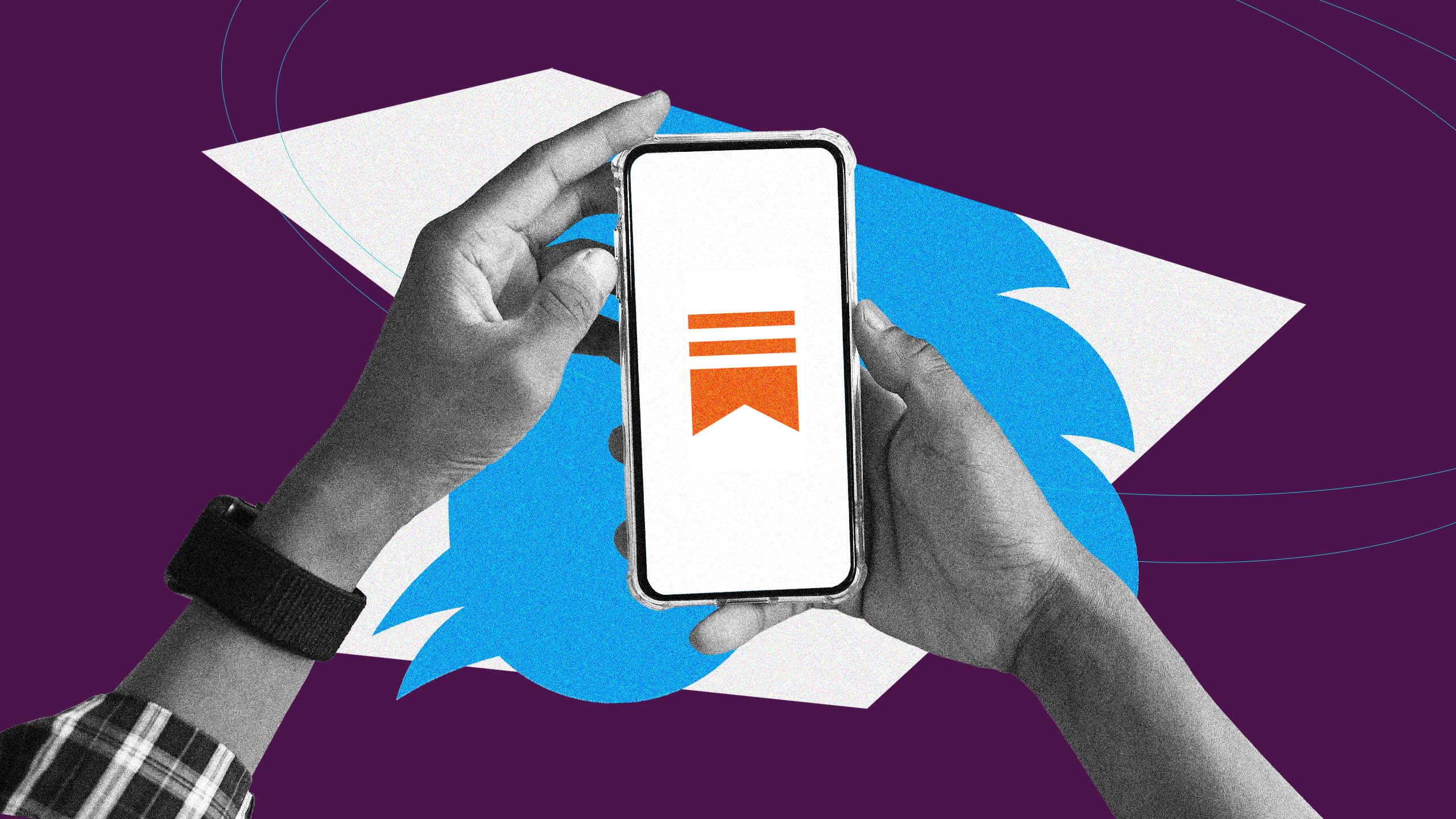Dark times are upon us. Twitter has been purchased by Elon Musk. Each day, the platform breaks down a little bit more or removes one more guideline intended to protect trans people. But never fear! Embattled newsletter platform Substack has come forward with a solution: move over to Notes, their version of Twitter, which will never have any protections for trans people, and whose founders’ last attempt at anything like a social platform was dubbed a “predator’s paradise” for its abundance of child pornography.
Look. There is no love lost between me and Substack. (I reached out to them for this piece, and have not received any response so far.) I was one of many trans people who left the platform in March 2021. I was disgusted by their failure to moderate transphobic content, and no longer felt like lending my name or credibility to their startup. There was a brief attempt to organize a more formal protest, in which I participated; the momentum of that effort was broken when Daniel and Grace Lavery, two high-profile trans writers who had been invited to help organize, but who chose instead to accept the cumulative half million dollars ($125,000 for Grace Lavery; $430,000 for Daniel) that Substack offered. A year later, Grace left Substack, citing its unwillingness to ban her harasser, Graham Linehan. Daniel’s newsletter, the Chatner, is still on the platform.
In the intervening years, many trans people have seemed to make peace with Substack, which operates for aspiring media professionals the same way Tumblr operated in 2010: professional writers have accounts there, and if you sign up, it makes you look professional. It’s not like any other platform is better, especially not after Musk’s takeover, and with traditional publications shuttering right and left, it’s good to have a stream of income that you control.
“Like, yeah, it feels weird to be on Substack knowing how the Substack guys are and knowing who’s published there. But what’s the alternative?” Niko Stratis, sometime Xtra contributor and current Substacker, tells me on a Zoom call. “I’m still building my career. I know from the outside that doesn’t always necessarily look like it’s the case, but I very much am. I’m not going to do that if I’m using some service that people don’t really use or trust or that they don’t look at the same way.”
I’m sympathetic to this argument. For emerging writers, any job is a good job, and compromise is part of how you stay in the game long enough to succeed and start setting terms. Stratis is one of my favourite writers, and I support any measure she takes to keep her career thriving. There is a business case for queer media professionals to use Substack—which is relevant, since Substack has primarily been a business product until now.
But Notes, Substack’s seeming Twitter replacement, is something else. A social product cannot work as a one-way broadcasting operation. It requires readers as well as writers, conversation rather than content. Conversation cannot function without moderation, and here is where Substack’s past failures—including Kik, the previous enterprise of Substack’s co-founders Chris Best and Jairaj Sethi, an app where lack of moderation led to real-world violence and abuse—become relevant.
Before we get there, though, let’s visit an interview that has already become legendary—Chris Best responding to Nilay Patel’s question in The Verge about whether calls to eject “brown people” from the United States would be welcome on Substack Notes:
NILAY PATEL: No, I really want you to answer that question. Is that allowed on Substack Notes? “We should not allow brown people in the country.”
CHRIS BEST: I’m not going to get into gotcha content moderation.
PATEL: This is not a gotcha … I’m a brown person. Do you think people on Substack should say I should get kicked out of the country?
BEST: I’m not going to engage in content moderation, “Would you or won’t you this or that?”’
PATEL: That one is black and white, and I just want to be clear: I’ve talked to a lot of social network CEOs, and they would have no hesitation telling me that that was against their moderation rules.
BEST: Yeah. We’re not going to get into specific, “Would you or won’t you” content moderation questions.
The answer, if history provides us with any guidance, is no—Substack almost certainly wouldn’t moderate this type of bigoted content on Notes, just as it doesn’t moderate that content in newsletters. Substack’s commitment to not moderating content is its signature stance, and transphobia is just the tip of the iceberg. In 2022, after multiple reports that the platform had been overrun by COVID-19 misinformation and conspiracy theories, then-comms head Lulu Cheng Meservey publicly defended the choice to not moderate COVID-19 content, tweeting that “if everyone who has ever been wrong about this pandemic were silenced, there would be no one left talking about it at all.”
Freedom of expression is precious, but it famously ends where other people’s safety begins. It’s not free speech to shout “fire” in a crowded theatre. This is where we have to talk about Kik, and about the natural end of completely unregulated conversation in a world full of people who do bad things.
Kik was founded in 2009 by what its website calls “a small but passionate group of University of Waterloo students” including its current CEO Ted Livingston. Two of Substack’s three co-founders were part of Kik: Best was co-founder and CTO, and Substack’s own CTO, Jairaj Sethi, was Kik’s Head of Platform and Principal Developer, beginning in 2012. The platform began as an MP3-sharing app and pivoted to messaging, distinguishing itself for how easy it was to send anonymous messages. In May 2016, Kik estimated that 40 percent of teenagers in the U.S. used the app.
Here’s who else used Kik: Thomas Paul Keeler II, who, as per a joint report by British media company Point and Forbes, was found upon his arrest to be a member of “200 Kik groups with names like ‘kidsnbabies,’ all dedicated to trading child abuse material, including images and videos of minors aged between three and 12 ‘engaged in sexual acts with adults.’” That joint report called Kik “the de facto app for child predators.” A convicted child molester known only as “Steve” described it to CBS News as a “predator’s paradise,” before demonstrating that it took him only 44 seconds after making his first post to get a friendly message from a teenage girl: “In two days max, I could have her sending me nude pictures,” Steve told the reporters.
It gets worse. In 2016, 13-year-old Nicole Lovell was murdered by an 18-year-old she’d met on Kik. Her mother publicly blamed the app for her death: “They need to shut Kik down,” she told CBS. “It’s just disgusting.” Even after Lovell’s death, child safety experts were baffled by the app’s lack of precautions: “It looks to me like Kik hasn’t done any kind of risk assessment, they’ve allowed for anonymous communication without sufficient privacy and safety controls,” Sonia Livingstone, who sat on the executive board of the U.K.’s Council for Child Internet Safety, told Forbes. Multiple accounts belonging to accused or convicted child sex offenders could be found on Kik. The site had not bothered to remove them. “Safety is a priority for us,” said Livingston, in a statement provided to Forbes at the time.
Again, I reached out to Kik for comment while writing this piece; again, Kik has not responded.
Chris Best and Jairaj Sethi left Kik in 2017, after the Lovell killing. They co-founded Substack with tech journalist (and Elon Musk hagiographer) Hamish McKenzie later that same year. Behind the scenes, sources tell me, Best’s seeming failure to learn anything from Kik is frightening: “To not have an answer to ‘how do you moderate content’ after that is insane,” said one source, who asked to be anonymous for fear of professional fallout. As the company pivots away from newsletters and toward conversation once again, all the elements are in place for another tragedy. It might not be trans writers, or even trans adults, who suffer most next time. Depending on how things shake out, we might come to wish we were the only ones getting hurt.
I am still on Twitter. It is, like everything else, a business decision—it’s every smart author’s dream to be successful enough that they can quit Twitter without hurting sales (notice that I said every smart author), but I’m not there. As Twitter deteriorates and becomes less useful for promoting my work, that calculus will probably change. Right now, I’m stuck using the site that earns me money. In a career that depends on being publicly visible and reachable, none of us are pure.
Yet even if Substack is good for writers, it’s not very good for people. Substack has played a major role in normalizing open transphobia from media outlets—it’s hard to remember, now that everybody from Spotify to Netflix to the New York Times is platforming and profiting from TERFs, but in the very recent past these were fringe perspectives. There is certainly an argument that trans writers are underemployed, and deserve to take any paycheque they can get, but, even so, Substack profits some writers more than others. A February 2022 list of Substack’s 40 most successful newsletters includes trans-hostile pundits Matt Taibbi (#2), Bari Weiss (#3), Glenn Greenwald (#5) and Jesse Singal (#23). Number 21 on the list is Graham Linehan. The Chatner does not appear on the list.
If there’s one thing we’ve learned about the internet in the past three decades, it’s that in the absence of good moderation, the loudest asshole will always win. This has led us to some pretty bleak places. We only just got President Loud Asshole out of office. I believe Substack’s leadership has a track record of hurting people, often vulnerable people, in non-negligible ways; I believe Substack’s leaders have never sufficiently reflected on the damage they’ve done, and that they do not have a plan to avoid hurting more people in the future. For those reasons, I do not work with them. It’s my choice to make, and I’m glad I made it. The fact that all of us are compromised, and that most problems are structural, does not mean that we cannot make things worse or better by what we do.
Twitter’s promise—probably always bullshit—was that celebrities and microcelebrities and everyday people could connect on the same playing field. You could rise to prominence on the strength of a few viral posts and start getting jobs in media or entertainment, or you could come in already famous and connect with your fans in (a highly managed simulacra of) normal communication.
As Twitter breaks down, that illusory community will break, too. Among the non-writers I spoke to for this piece, none of them even mentioned Substack Notes as an alternative. There is a substantial queer community on Mastodon. There are fandom-friendly sites like Dreamwidth and parts of Tumblr. There are apps for specifically connecting with other queers, like Spaces and Lex, and there are a whole host of Twitter-lite startups—Post, Cohost, etc.—that intend to provide competition. Sooner or later, one of them will arise as the preferred alternative. Until then, we’re stuck feeding the beast; eking out our online “visibility” on platforms and apps run by wealthy strangers who don’t care what becomes of us in the end.


 Why you can trust Xtra
Why you can trust Xtra


